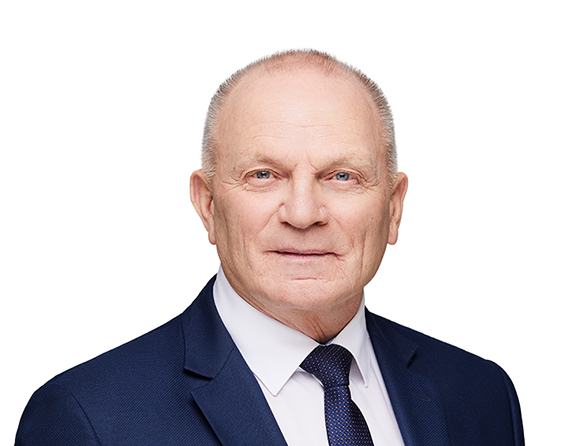
AI Profiileerimine: Vladimir Arhipov
Päevakorrapunkte: 180
3030/3030 profiling (100.0%)
Sõnavõtte kokku: 371
Analüüsi periood: 2024-07-15 - 2025-09-24
Poliitiline positsioon
Kõneleja esindab järjekindlalt tugevat opositsioonilisi seisukohti, keskendudes peamiselt sotsiaalmajanduslikele küsimustele - eriti maksutõusude vastasusele, pensionäride ja vähekindlustatud inimeste õiguste kaitsele ning käibemaksu langetamise nõudmisele. Poliitilised positsioonid on selgelt väärtuspõhised, rõhutades sotsiaalset õiglust ja "tavainimeste" kaitsmist valitsuse poliitika eest, kusjuures eriti teravalt kritiseeritakse olukorda, kus "vaesed maksavad rohkem, rikkad saavad rohkem". Läbivaks teemaks on ka demokraatliku kaasatuse nõudmine, vastuseis valimisõiguse piiramisele mittekodanikele ning bürokraatia kasvu kriitika. Ajaperioodil 2024-2025 on seisukoht muutunud veelgi teravamaks, kasutades selliseid väljendeid nagu "maksurallik" ja võrreldes riigi tegevust isegi kolhoosistamisega.
Teemade ekspertiis
Kõneleja demonstreerib järjekindlalt sügavaid teadmisi mitmes võtmevaldkonnas, eriti kohaliku omavalitsuse rahastamises, energiapoliitikas, riigikaitse- ja sotsiaalküsimustes. Ta opereerib regulaarselt konkreetsete numbrite ja statistikaga (nt eelarve defitsiidid, toetussummad, ooteajad tervishoius), tugineb rahvusvahelistele võrdlustele ja kasutab oma pikaaegset praktilist kogemust omavalitsustöös (32 aastat volikogus, 10 aastat linnapeast). Tema ekspertiis on eriti tugev regionaalpoliitika, maksuküsimuste ja infrastruktuuriprojektide (Rail Baltic, Via Baltica) valdkonnas, kus ta suudab siduda erinevaid poliitikavaldkondi terviklikuks analüüsiks.
Retoorriline stiil
Poliitiku retoorika on järjepidevalt emotsionaalne ja konfrontatsiooniline, kombineerides faktipõhiseid argumente tugevate emotsionaalsete apellatsioonidega "hea Eesti rahva" poole. Kõnelemisstiil on otsekohene ja dramaatiline, kasutades sageli retoorilisi küsimusi, isiklikke lugusid tavainimeste elust ning kujundlikke väljendeid valitsuse kriitikaks. Läbivalt säilib rahvalik ja arusaadav sõnastus, mis vältib bürokraatlikku keelt ning toetub konkreetsetele näidetele pensionäridest, peredest ja kohalikest probleemidest. Kuigi toon jääb ametlikult viisakaks parlamendilikes pöördumistes, on see sügavalt kriitiline ja väljakutsuv, nõudes ministritelt konkreetseid vastuseid ja tegusid.
Tegevusmustrid
Kõneleja näitab järjekindlat ja intensiivset aktiivsust Riigikogu istungitel, osaludes peaaegu igal istungipäeval ja esitades regulaarselt küsimusi peaministrile ning erinevatele ministritele. Tema tegevusmuster on süstemaatiline ja järjepidev - keskendub järjekindlalt samadele teemadele nagu maksud, majandus, sotsiaalsed küsimused ja regionaalareng, näidates selget opositsioonilist lähenemist valitsuse poliitika suhtes. Lisaks parlamenditegevusele hoiab ta aktiivselt ühendust valijatega, mainides regulaarseid külastusi eakate seltskondadesse ja reise üle Eesti, samuti korraldab ekskursioone (näiteks Hiiumaale). Tema kommunikatsioonimuster hõlmab nii suulist küsitlemist istungitel kui ka kirjalike järelepärimiste esitamist ministritele, mis kinnitab põhjalikku ja mitmekülgset lähenemist parlamenditegevusele.
Opositsiooni hoiak
Kõneleja võtab järjekindlalt terava opositsioonipositsiooni valitsuse, eriti Reformierakonna ja Sotsiaaldemokraatliku Erakonna suhtes, keskendudes peamiselt poliitikakesksele kriitikale maksupoliitika, sotsiaaltoetuste kärpimise ja otsustusprotsesside läbipaistmatuse osas. Kriitika on põhimõtteline ja kompromissitu põhiküsimustes nagu pensionäride õigused, valimisõiguse piiramine ja põhiseaduse muutmine, kasutades tugevat retoorikat ("rulliga üle käimine", "nõiajahi alustamine") valitsuse süüdistamiseks rahva petmises ja huvide eiramises. Opositsioon on konstruktiivne poliitikameetmete osas, pakkudes alternatiive ja küsides täpsustusi, kuid muutub järjest teravamaks isiklike süüdistuste suunas konkreetsete ministrite aadressil. Kompromissivalmidust näidatakse vaid siis, kui see teenib otseselt kodanike huve, muidu on seisukoht kategooriline ja järjekindel.
Koostööstiil
Kõneleja näitab selektiivselt pragmaatilist koostöövalmidust, olles avatud konstruktiivseks koostööks konkreetsetes riigi huvides olevates küsimustes nagu riigikaitse, spordirajatised ja küberturvalisus, kuid säilitades opositsioonilise hoiaku valitsuse põhipoliitika suhtes. Fraktsioonikaaslastega koostöö on järjepidev ja tugev, sageli viidatakse kolleegide küsimustele ja toetatakse nende algatusi. Koostööstiil on institutsioonidesse austav ja viisakas, kuigi nõudlik - eelistatakse selgituste küsimist süüdistuste tegemisele ning väljendatakse valmisolekut aidata valitsust praktiliste lahendustega ("kui te tahate, et keegi teid abistab, siis küsige Keskerakonnalt abi"). Üldiselt iseloomustab lähenemist konstruktiivne opositsioonilisus, kus koostöövalmidus sõltub konkreetse küsimuse riiklikust tähtsusest.
Regionaalne fookus
Poliitik näitab järjekindlat ja tugevat keskendumist regionaalpoliitikale, esindades eelkõige Harjumaa huve, kuid pöörates olulist tähelepanu ka teiste piirkondade probleemidele, eriti Ida-Virumaale ja Hiiumaale. Tema regionaalne fookus on konkreetne ja detailne - ta toob pidevalt esile spetsiifilisi näiteid kohalike teenuste sulgemisest (kohtumajad, politseijaoskonnad, koolid), infrastruktuuri probleemidest ja omavalitsuste rahastamise kitsaskohtadest. Eriti tugevalt kaitses ta väiksemate kogukondade huve, kritiseerides teenuste tsentraliseerimist ja rõhutades vajadust regionaalsete erinevuste arvestamise järele riiklike otsuste tegemisel. Tema lähenemisviis on praktiline ja kogemusepõhine, tuues sageli näiteid oma kodulinnast Maardust ja teistest Harjumaa omavalitsustest.
Majandusvaated
Poliitiku majandusvaated on järjepidevalt populistlikud ja keskenduvad maksukoorma vähendamisele tavainimestele, eriti toetades toiduainete käibemaksu langetamist ja vastustades maksutõuse. Ta kritiseerib süstemaatiliselt valitsuse maksupoliitikat kui ebaõiglast, väites et see koormab ebaproportsionaalselt madala sissetulekuga inimesi, samas toetab pangamaksu kehtestamist ja riigi suuremat rolli sotsiaalse infrastruktuuri rahastamisel. Tema lähenemises domineerib vastuolu - ühelt poolt nõuab ta maksude langetamist ja teiselt poolt riigi suuremat panust sotsiaalvaldkondadesse, toetades ekspansiivsemaat rahanduspoliitikat ja riigi laenuvõttu. Järjepidevalt eelistab ta kohalike töötute väljaõpet välismaalaste tööjõu importimisele ning nõuab omavalitsuste finantsautonoomia suurendamist.
Sotsiaalsed küsimused
Poliitik keskendub järjepidevalt haavatavate ühiskonnaliikmete kaitsele, eriti pensionäride, vähekindlustatud perede ja mittekodanike õiguste eest seismisele. Tugevalt toetab usuvabadust ja õigeusu kogukonna kaitsmist, kritiseerides valitsust usklike diskrimineerimise eest. Rõhutab sotsiaalse õigluse vajadust tervishoius, hariduses ja sotsiaaltoetustes, nõudes toimetulekutoetuse indekseerimist ja tasuta tervishoiuteenuste kättesaadavuse parandamist. Järjepidevalt hoiatab ühiskonna lõhestamise eest ja kaitseb mittekodanike valimisõigust kui fundamentaalset demokraatlikku printsiipi.
Seadusandlik fookus
Kõneleja seadusandlik fookus keskendub järjepidevalt valitsuse eelnõude kriitilisele hindamisele ja alternatiivide pakkumisele, olles pigem opositsioonilise lähenemisega poliitik kui algataja. Tema põhilised prioriteedid hõlmavad sotsiaalpoliitikat (pensionid, toetused, hooldusreform), riigikaitse seadusandlust (reservväelaste hüvitised, tsiviilkaitse), haridusküsimusi ning kohaliku omavalitsuse rahastamist. Läbivalt vastustab põhiseaduse muutmist valimisõiguse piiramise suunas ja nõuab suurema läbipaistvuse tagamist riigi rahaliste otsuste tegemisel. Tema seadusandlik stiil on pragmaatiline - toetab mõistlikke algatusi, kuid eelistab sageli eelnõude täielikku tagasilükkamist parandamise asemel.